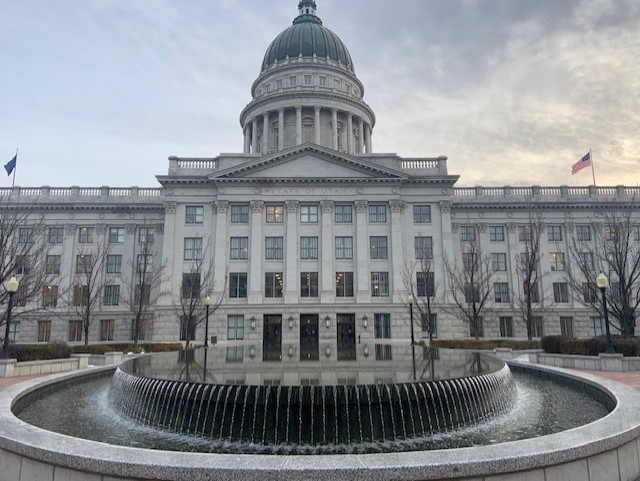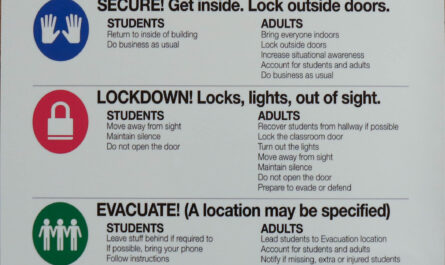by Bradley Power
Managing Editor
The 2022 General Session of the Utah Legislature concluded on Mar. 4 after its 45-day run. Over five hundred bills were passed over the course of the session, many of which deal with state education policies and practices.
The Utah Education Association (UEA) called this legislative year the “Year of the Educator,” for the accomplishments and milestones that were reached in support of teachers and school administrators across the state.
One of the largest lasting impacts of this legislative session will be the continued boosts to funding for education statewide. For the second straight year, legislators agreed upon an overall 6 percent increase to the state’s Weighted Pupil Unit (WPU), a number that represents the amount of financial effort put into each Utah student. In addition, nearly $70 million will be added to the state’s base budget for education. The budget for education (HB0001) can be found in more detail at le.utah.gov.
Early in the legislative session, UEA officials approached the legislature and asked for $57 million for something called “Educator-directed Flexible Time.” The legislature created House Bill 396, “Paid Professional Hours for Educators,” in response, and the bill was passed without incident. In a nutshell, this funding will be distributed among school districts and would be used to pay teachers for additional “flexible” hours outside of their normal work hours.
For example, at NS, teachers are paid up until 3:30. Under this new legislation, a teacher who spent two hours after 3:30 working on school-related things would still be eligible to make money during those hours. The legislative intent is that each educator would be able to utilize between 32 and 40 extra work hours in a year, and that individual educators would choose how and when to use them. Teachers would be able to be paid for some of the extra professional hours that they put in.
HB396 was a victory for educators—in fact, after substitutions and readings of the bill, the amount of funding was increased to $64 million.
“Since when does the UEA ask for something and the legislature gives us more?” said UEA President Heidi Matthews in a UEA report on HB396, after the bill was passed. “This result is another testament to the influence of our hard-working educators, and a welcomed acknowledgment by the legislature of the stress educators are experiencing.”
This “Year of the Educator” was not only special because of bills that were passed, but also because of bills that were rejected. This legislative session was marked by a cluster of bills centered around school curriculums, and specifically, the influence of students’ parents on those curriculums. These bills included SB114 (which would have increased the role of parents in the process for the adoption of new curriculum material), HB234 (which would have required educators to release daily lesson plans and materials to parents), and SB157 (which would have opened the door for parents to sue teachers for infringing upon “parental rights”). All three of these, and a few others concerning curriculum, failed to pass through the legislature before the session concluded and have hence been rejected.
On the surface, implementing more parental influence in curriculum may seem like a good idea. However, educators and administrators were unsure of the necessity of some of these bills.
“By law, parents aren’t necessarily in charge of the curriculum,” said NSSD Superintendent Nan Ault. “They have responsibility for the education of their children, to a great extent, but when you send them to a public school with professional teachers, then there has to be some responsibility on teachers’ parts, and on the district’s part, to select the best material possible… I honor parents and the role they play, I don’t want it to sound like parents shouldn’t be involved, because that’s not the case. My concern is the respect and protection of teachers… we do have a responsibility to select the curriculum well for the standards, and parents should know what that curriculum looks like.”
So, parents have a right to know what their children are taught—but schools and school districts have a responsibility to manage and direct those teachings, as advised by and in light of the recommendations of the Utah State Board of Education. These bills were also controversial because educators worried their normal classroom practices might be challenged or changed by what the bills implied.
“I feel like there’s this massive distrust happening in our country right now,” said teacher Jori Turpin, “and I feel like there’s this really massive distrust for teachers, which kind of scares me, and makes me sad… If a parent came to me and was like ‘Hey, I don’t appreciate this aspect of your curriculum,’ it’s something we could talk about. But I need to also trust that we could have that conversation, instead of that parent just running to the school board or the admin and trying to ruin my job and my career. It should be this mutual trust both ways, where we can have conversations and grow, and see each other’s viewpoints.”
Generally, administrators recommend that parents with grievances or concerns go directly to the teacher to discuss them openly. If a solution is not found, then an administrator can be brought into the discussion.
“Respect the teacher, and go have a conversation with them,” said Ault. “They can tell you why [the material] was selected, and how it’s used, and what benefit it creates for the student. And then, have a conversation with an administrator, if you’re not finding the solution that you need… Do mistakes happen? They certainly do! This is why you have administrators. This is why you have people who can take those corrective actions to make sure that kids are safe and getting a great, high quality, education.”



